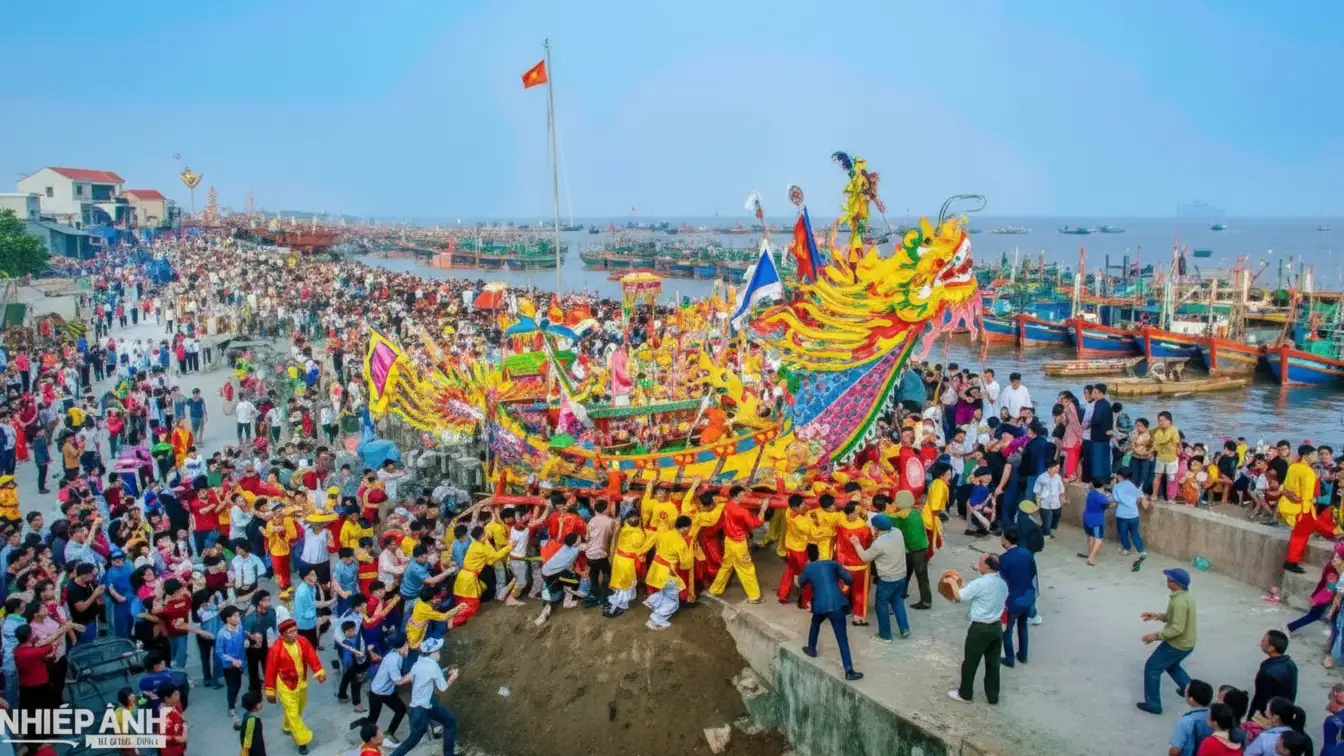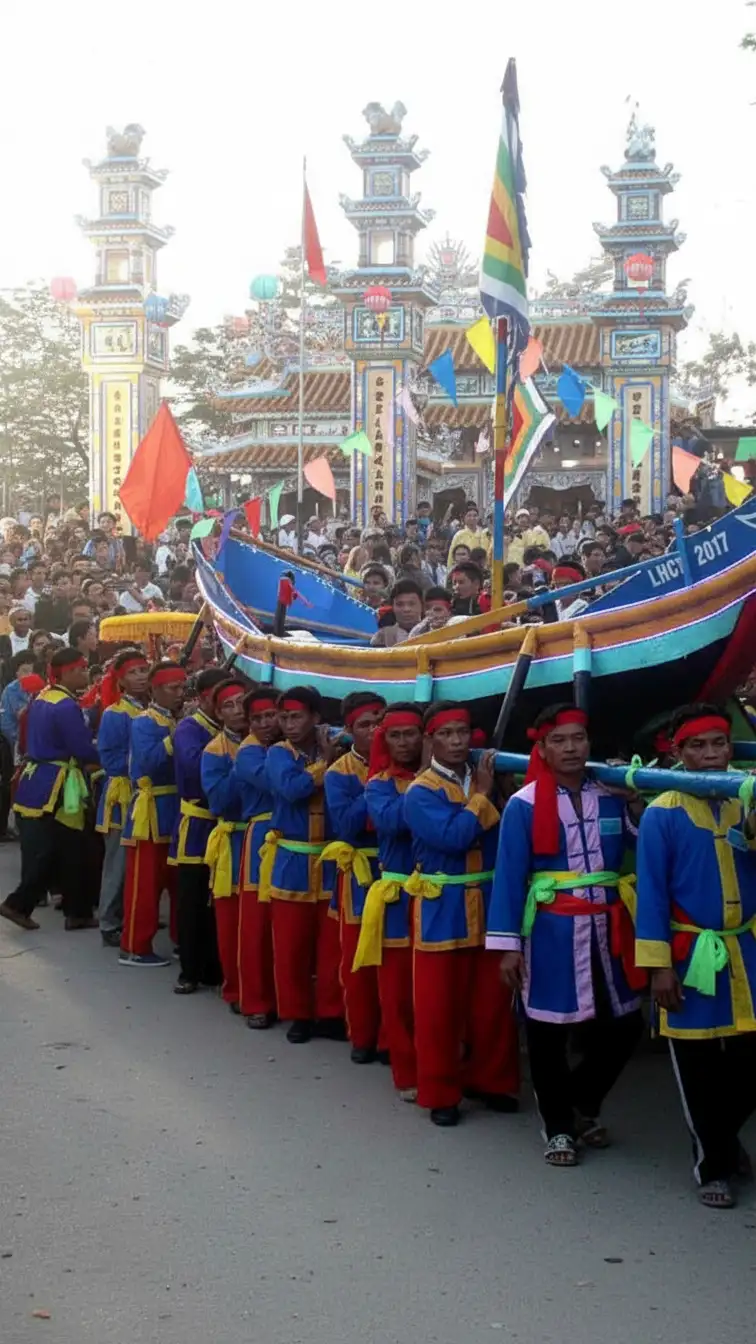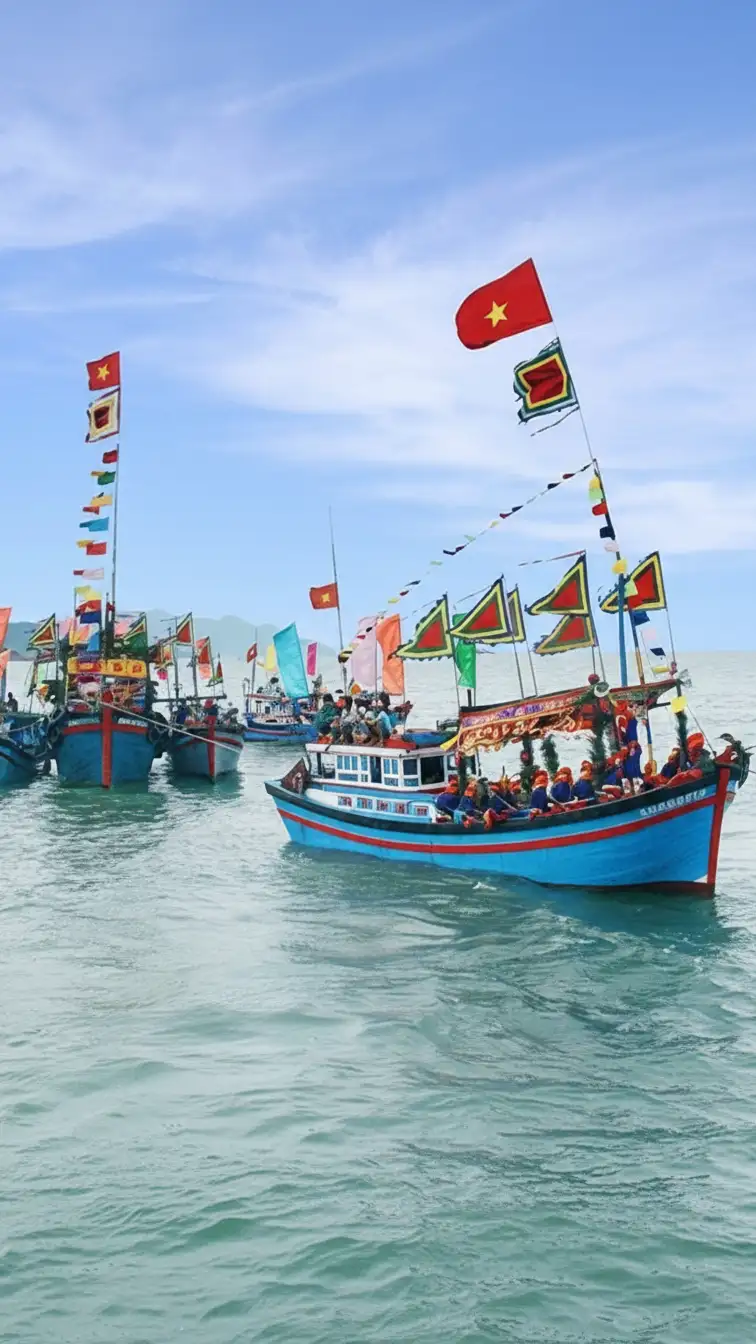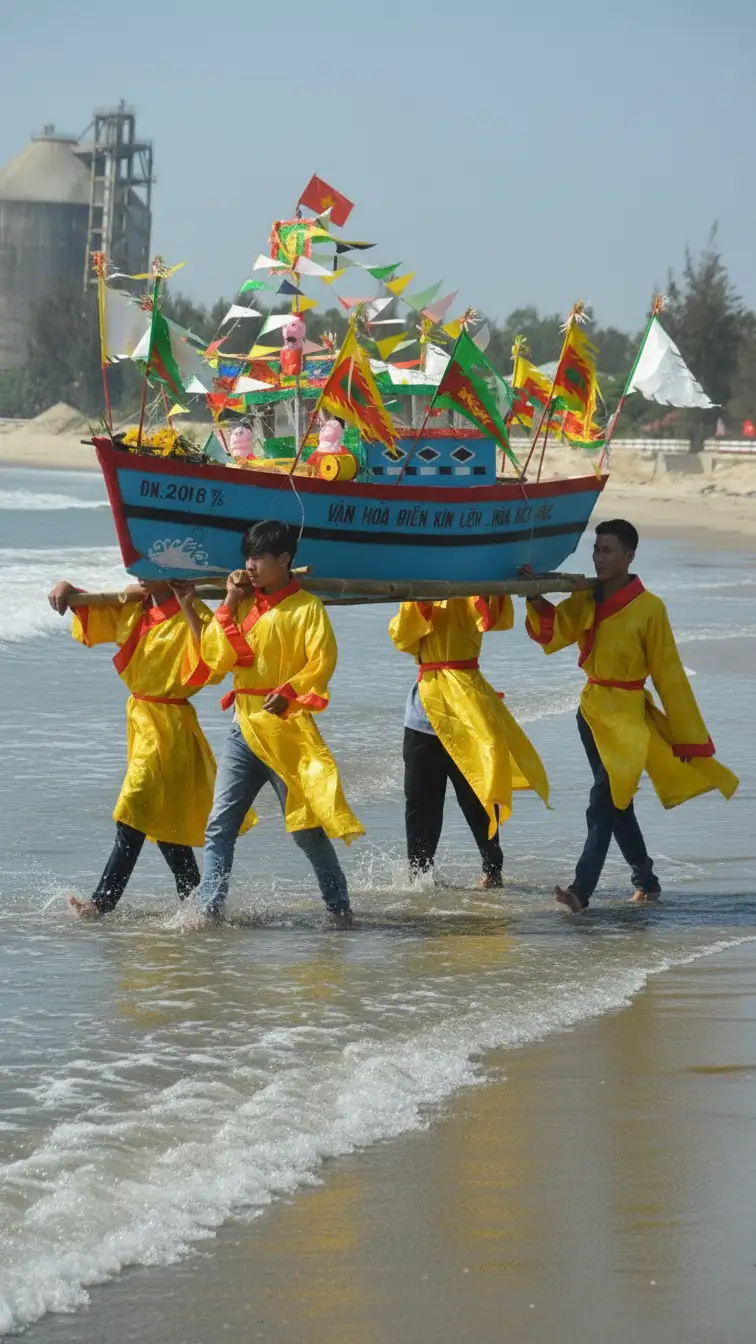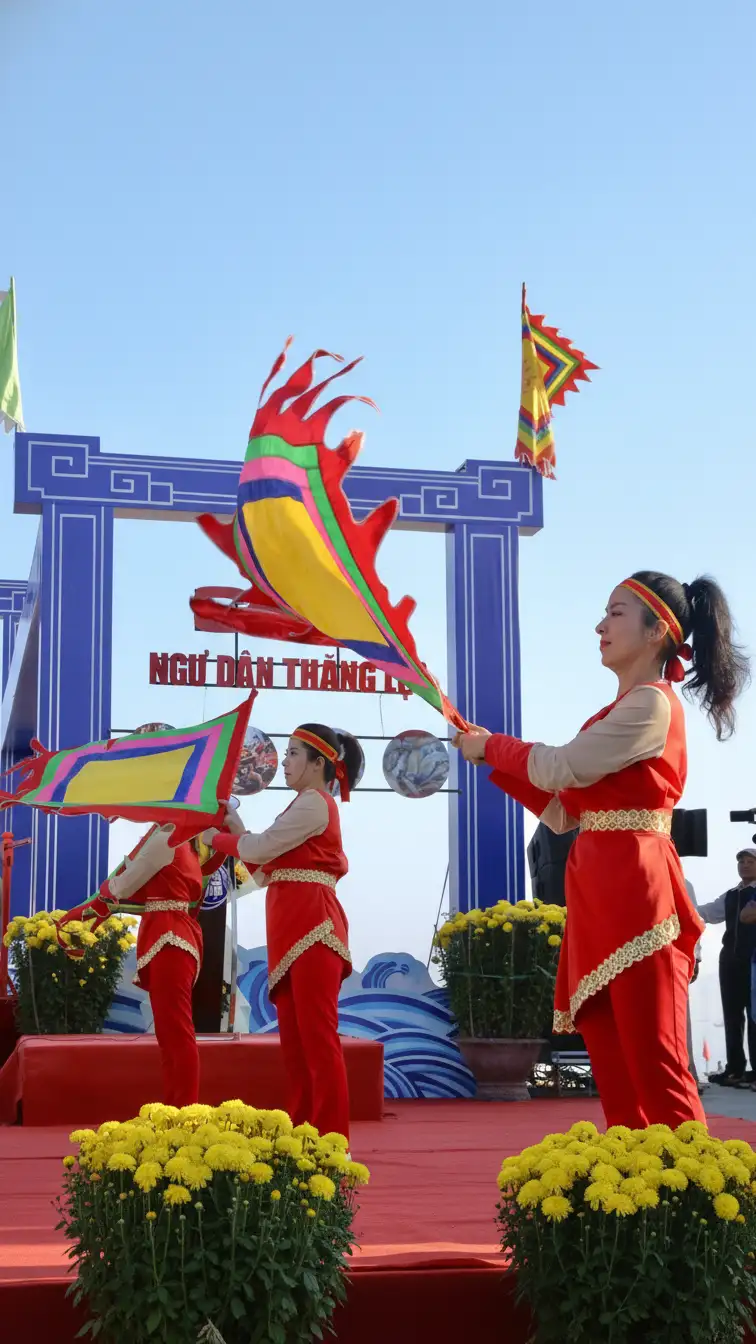Quick Facts
| Data Field (Title) | Content | Icon/Note |
|---|---|---|
| Official Vietnamese Name | Lễ hội Cầu Ngư | Translates to 'Praying for Fish Festival' or 'Fishermen's Festival'. |
| Alternative English Name | Whale Worshipping Festival (or Cá Ông Festival) | Acknowledges the central deity: Cá Ông (Mr. Whale). |
| Region | Coastal provinces of Central and South Central Vietnam, including Da Nang, Phú Yên, Bình Định, and Khánh Hòa (Nha Trang). | A tradition deeply rooted in maritime culture. |
| Traditional Timing | Varies by locality, typically held annually in Early Spring (the 1st or 3rd lunar month) after the Lunar New Year (Tết). | Marks the beginning of a new fishing season. |
| Significance | A communal event to pray for a bountiful catch, safe voyages on the sea, and to express gratitude to the ocean deities. |
I. Overview: The Guardian of the Seas
The Sacred Belief
The Lễ hội Cầu Ngư is one of the most significant and spiritually profound festivals for Vietnam’s coastal communities. At its heart is the deeply ingrained folk belief in Cá Ông (The Whale God), also known as Ông Nam Hải (Lord of the Southern Sea).
Fishermen view the whale not merely as an animal, but as a benevolent deity—a guardian angel that tirelessly protects them from storms and guides their boats safely back to shore. The festival is a solemn expression of this faith, a practice that highlights the coastal people’s profound connection to the ocean.
National Cultural Heritage
This tradition is so crucial to the identity of coastal Vietnam that several local Cầu Ngư festivals (such as those in Da Nang and Phú Yên) have been officially recognized as National Intangible Cultural Heritage by the Vietnamese government, ensuring its preservation for future generations.
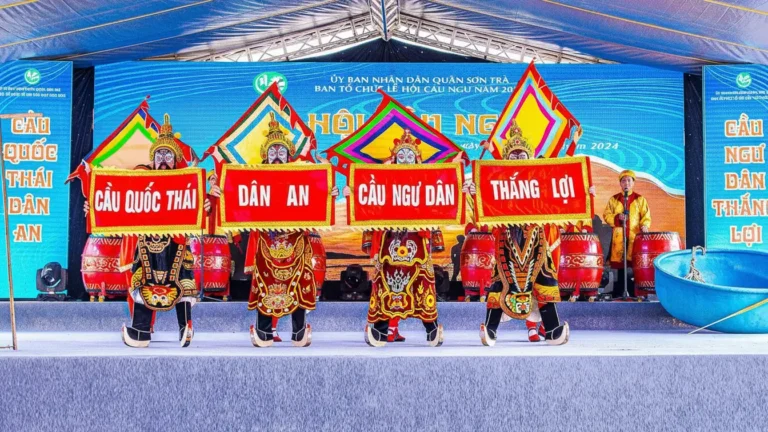
II. Festival Activities: Ritual and Celebration
The Cầu Ngư festival is traditionally divided into two main parts: the solemn rituals (Lễ) and the vibrant celebrations (Hội).
1. The Ceremonial Rituals (Lễ)
Venue: Rituals are typically held at the local Whale Temple (Lăng Ông) or Communal House of the fishing village.
The Ritual of Offerings: Village elders lead solemn ceremonies to pay homage to the Sea God and Cá Ông. Offerings—which traditionally do not include any seafood—are presented alongside an oration praying for peace, prosperity, and calm seas.
Nghinh Ông (Welcoming the Whale God): This is a key ritual that involves a grand procession. A beautifully decorated, large boat carrying an altar, offerings, and the village elders is escorted by a fleet of smaller fishing boats, sailing out to sea to symbolically receive and welcome the spirit of the Whale God into the village.
Whale Funeral: When a dead whale washes ashore (cá Ông lụy bờ), the community conducts an elaborate, human-like funeral ceremony. This highly respected ritual demonstrates the community’s profound reverence for their protector.
2. The Festive Celebrations (Hội)
Following the sacred rituals, the atmosphere shifts to a joyous communal celebration filled with arts and games.
Traditional Arts: The festival showcases regional folk arts, including performances of Hát Tuồng (Classical Vietnamese Opera) and Hát Bài Chòi (Traditional Central Vietnamese folk singing and games).
Folk Games and Sports: The community bonding is cemented through various traditional games and competitions, often maritime-themed:
Thúng Boat Spinning/Racing: Exciting races using the distinctive round Vietnamese basket boats.
Tug-of-War (on land or water).
Fish Carrying/Net Weaving games.
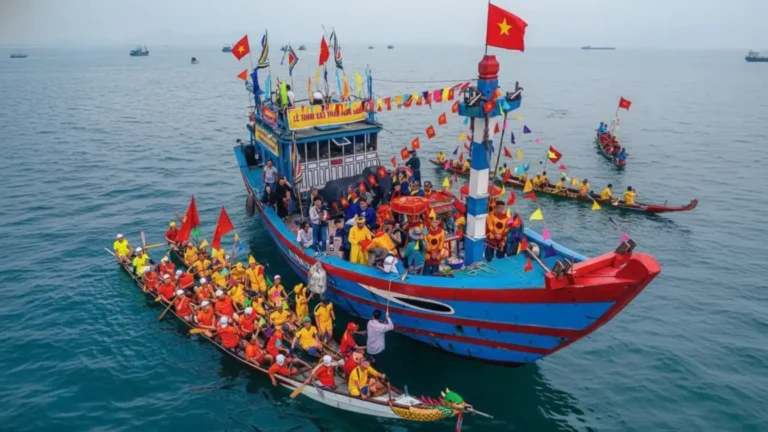
III. Visitor Information
| Guide Field | Details |
|---|---|
| The Best Experience | To witness the most authentic and elaborate Cầu Ngư festivals, visit coastal cities like Da Nang, Nha Trang (Khánh Hòa), or Quy Nhơn (Bình Định) during the early lunar months. |
| Cultural Tip | If you visit a Lăng Ông (Whale Temple), note that the remains of beached whales are preserved and worshipped, showcasing the depth of this long-standing tradition. |
| Attending the Procession | The Nghinh Ông procession on the sea is a spectacular sight, featuring boats adorned with flags, garlands, and offerings, accompanied by traditional music. |
| Local Community Focus | This festival is a celebration of the community's livelihood and spiritual life; visitors are welcome, but the rituals are performed with utmost sincerity and devotion by the local fishermen. |
